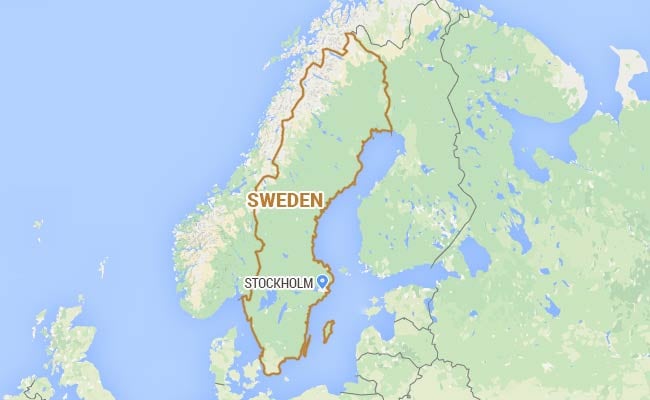
Stockholm:
Sweden edged closer to a fresh national election on Friday after a budget deal with opposition parties that had made it possible for Prime Minister Stefan Lofven's centre-left coalition to rule as a minority government collapsed.
A grassroots rebellion at the Christian Democrats convention prompted the smallest opposition party to vote to pull out of the accord and other centre-right parties quickly followed.
Although the opposition would have to unite on a joint budget bill for the government to fall, that raises the chances Lofven will call Sweden's first snap election in more than half a century, little more than a year after he won power.
A previous threat to do so had prompted the deal in December under which four centre-right parties agreed to approve Lofven's budgets until 2022 in order to sideline the anti-immigration Sweden Democrats, which hold the balance of power in parliament.
"This means a much more volatile and unstable situation," Gothenburg University Political Science Professor Ulf Bjereld said. "The risk of snap elections has increased, but most parties don't want that."
Any new election could lead to renewed policy paralysis just as calls are growing for reforms to ensure the triple-A-rated economy remains one of Europe's economic stars.
With Sweden expecting a record number of asylum seekers this year as Europe deals with its biggest migration crisis since World War Two, the Sweden Democrats have been the only party to make substantial poll gains since last year's election.
One opinion poll in August had them as the largest party, with a quarter of respondents favouring them, although another poll on Friday put them at 19.5 percent.
"They (the Sweden Democrats) are the only clear winners of a snap election," said Bjereld.
CRITICISM
Opposition voters and politicians had criticised the budget deal for allowing Lofven's coalition of Social Democrats and Greens too much leeway on policy.
"We are not prepared, during this and the next term of office, to be some supporting troops to Stefan Lofven," said Christian Democrat Anders Andersson, who championed ending the accord at the party's annual convention.
"We don't accept that a left-wing, socialist policy is pushed through the Swedish parliament even though it lacks support."
The government's current budget bill, which parliament is due to vote on in December, is still likely to pass as the opposition parties have all tabled their own separate budget proposals rather than a joint one.
Both the Liberals and the Christian Democrats, part of the four-party opposition "Alliance", said on Friday they would vote for their separate budgets.
"The Liberal party wants to avoid Sweden being thrown into political chaos, but unfortunately that cannot be excluded," party leader Jan Bjorklund told local news agency TT.
But the Alliance could join forces around a single budget bill next year and force it into law although they would have to rely on the passive support of the unaligned Sweden Democrats.
A grassroots rebellion at the Christian Democrats convention prompted the smallest opposition party to vote to pull out of the accord and other centre-right parties quickly followed.
Although the opposition would have to unite on a joint budget bill for the government to fall, that raises the chances Lofven will call Sweden's first snap election in more than half a century, little more than a year after he won power.
A previous threat to do so had prompted the deal in December under which four centre-right parties agreed to approve Lofven's budgets until 2022 in order to sideline the anti-immigration Sweden Democrats, which hold the balance of power in parliament.
"This means a much more volatile and unstable situation," Gothenburg University Political Science Professor Ulf Bjereld said. "The risk of snap elections has increased, but most parties don't want that."
Any new election could lead to renewed policy paralysis just as calls are growing for reforms to ensure the triple-A-rated economy remains one of Europe's economic stars.
With Sweden expecting a record number of asylum seekers this year as Europe deals with its biggest migration crisis since World War Two, the Sweden Democrats have been the only party to make substantial poll gains since last year's election.
One opinion poll in August had them as the largest party, with a quarter of respondents favouring them, although another poll on Friday put them at 19.5 percent.
"They (the Sweden Democrats) are the only clear winners of a snap election," said Bjereld.
CRITICISM
Opposition voters and politicians had criticised the budget deal for allowing Lofven's coalition of Social Democrats and Greens too much leeway on policy.
"We are not prepared, during this and the next term of office, to be some supporting troops to Stefan Lofven," said Christian Democrat Anders Andersson, who championed ending the accord at the party's annual convention.
"We don't accept that a left-wing, socialist policy is pushed through the Swedish parliament even though it lacks support."
The government's current budget bill, which parliament is due to vote on in December, is still likely to pass as the opposition parties have all tabled their own separate budget proposals rather than a joint one.
Both the Liberals and the Christian Democrats, part of the four-party opposition "Alliance", said on Friday they would vote for their separate budgets.
"The Liberal party wants to avoid Sweden being thrown into political chaos, but unfortunately that cannot be excluded," party leader Jan Bjorklund told local news agency TT.
But the Alliance could join forces around a single budget bill next year and force it into law although they would have to rely on the passive support of the unaligned Sweden Democrats.
© Thomson Reuters 2015
Track Latest News Live on NDTV.com and get news updates from India and around the world

